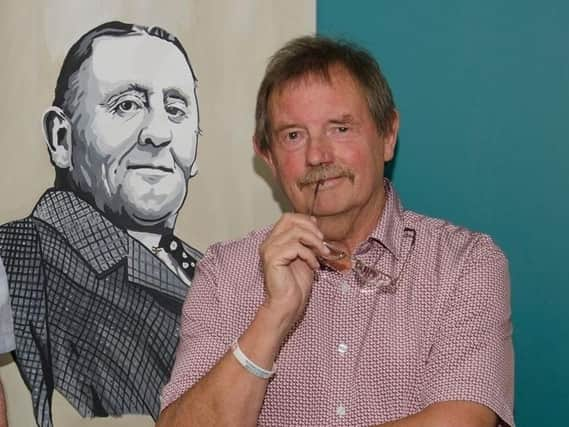Forget red wine, tobacco and opium... my fuel for writing is coffee and toast / Dave Thomas


You remember Rowan Atkinson of Mr Bean fame? He did a pretty good impression of the old French cop in the TV series.
Anyway, Simenon reportedly wrote 10,000 words a day aided by two bottles of red wine and six pipes of tobacco.
Advertisement
Hide AdAdvertisement
Hide AdI take my hat off to him; red wine simply sends me to sleep so I keep well clear of it. 10,000 words is pretty good going especially as he no doubt used a clumsy, battered, old typewriter.
There probably wasn’t a bigger hell raiser and drinker than Ernest Hemingway, his liver in such a state that doctors warned him to stop drinking. His adventures wherever he went make James Bond look like a boy scout!
He is one of the great writers, one of his books being The Old Man and the Sea.
I sometimes wonder how Charles Dickens produced such masterpieces. No typewriter, everything written in longhand, just notebooks, pen and ink. How he kept track of plots and characters only he knows.
Advertisement
Hide AdAdvertisement
Hide AdAn average book length for me is always around 110,000 words although Bob Lord was a bit longer. So how Dickens wrote books twice that length and kept track of things is just astonishing. He is thought to have used opium.
The computer: you can alter, fix, correct things in a second, jump back and forth, see in an instant everything you have written; but even with this miracle of technology, I’m no Simenon, writing 10,000 words a day. 3,000 is good for me, maybe 5,000 if there is enough reference material in front of me.
Each Burnley book I have ever written has begun with a collection of scrapbooks and ring binders filled with newspaper articles and match reports, that have taken years to accumulate. The origins of the Bob Lord book are in everything I collected and stored about him gathered over a long period.
Even then, without co-author Mike Smith it would not have seen daylight.
Advertisement
Hide AdAdvertisement
Hide AdA shelf near the computer has all of the Ray Simpson books; if a plumber needs his toolkit, then I need reference books filled with facts and figures and dates. Football fans reading any football book are quick to spot mistakes if you haven’t checked things. The first book I ever did It’s Burnley Not Barcelona, was filled with them.
So: I don’t guzzle bottles of red wine, I don’t smoke a pipe, my liver is fine and no opium. And morning is the best time, a great time to get stuck into things. Quiet house. Clear head. No distractions apart from the cat yowling for more breakfast. For me, one piece of toast at 7am and another at 9am. And coffee.
It’s the John Bond at Burnley story that I am working on at the moment. Starting with the promotion in 1981/82 and tailing off with the Orient game. But the emphasis is on Mr Bond in the middle of it all.
The biggest aid for this is the diary of former director Derek Gill, 130 pages of notes and recollections of his four years at the club. It was a turbulent time and Derek’s diaries, candid and heartfelt, are priceless.